Head-To-Head: Samsung Galaxy S8 Vs. Google Pixel
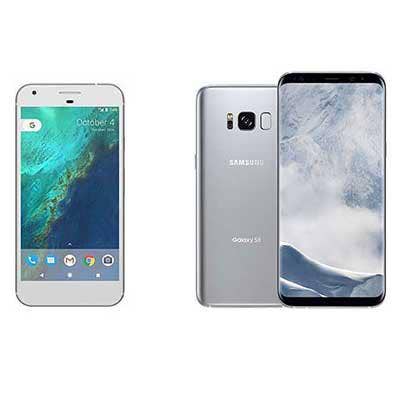
Android Wars
As Samsung launches its new Galaxy smartphone for the year, there are a few different dynamics this time around compared to previous cycles. We're not just talking about the still-lingering ghosts of the fire-prone Galaxy Note 7. There's also a major change in the market, in the form of a new competitor: Google and its premium Pixel smartphone. While the new Galaxy S8 is poised to appeal to legions of users, the Google Pixel may prove to be a bigger threat to Samsung than even the Apple iPhone 7 since the Pixel, of course, runs Android just like the Galaxy S8.
Which of the premium Android phones is a better fit for you? In the following slides, the CRN Test Center lays out how Samsung's Galaxy S8 compares vs. the Google Pixel on specs and price.
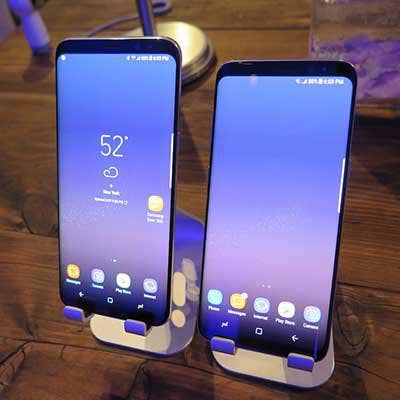
Display
The large display size on the Galaxy S8 makes a comparison with the Pixel not quite an apples-to-apples situation. The Galaxy S8 features a display that is 5.8 inches diagonally, versus 5 inches diagonally for the Pixel. Still, the S8 is the smaller of Samsung's two new Galaxy smartphones (the S8 Plus is even larger), so comparing with the Pixel, the smaller of the new Google phones, is the best we can do.
The S8 is the winner on resolution with its Quad HD+ (2,960 x 1,440), Super AMOLED display. Google goes with an AMOLED screen for the Pixel, with FHD (1,920 x 1,080) resolution. Though both displays are curved on the front left and right sides, the Pixel features a 2.5D curve while the S8 has more of a gradual curve that tapers over the edges of the phone.
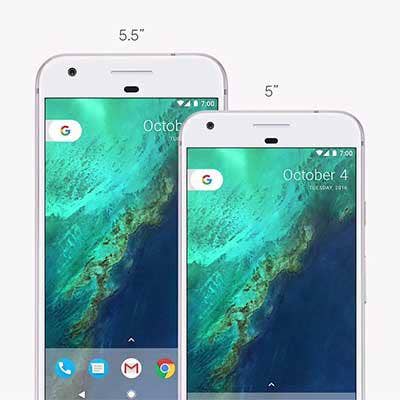
Overall Size
The standout characteristic of the Galaxy S8 is not necessarily that the display is so large but that Samsung has fit the large display onto a phone that doesn't feel enormous overall. The key is the lack of bezels on the S8; the phone's "Infinity" display covers 83 percent of the front of the device.
The measurement on the Galaxy S8 is 5.86 x 2.68 inches. The Pixel, meanwhile, measures 5.6 x 2.7 inches. That means the S8, despite having a 16 percent larger display, is actually not too much bigger overall than the Pixel.
The Pixel also has a slightly greater thickness of 0.33 of an inch, versus 0.31 of an inch for the Galaxy S8.
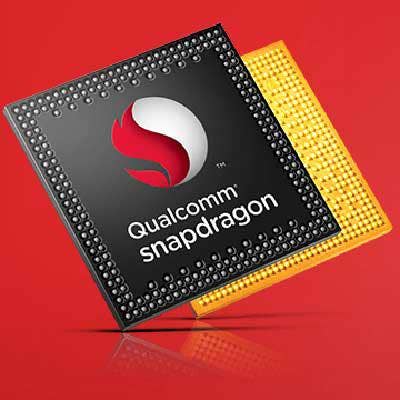
Processor
The Galaxy S8 benefits from being a bit newer to market than the Google Pixel; the S8 uses the newest Qualcomm processor, the Snapdragon 835. The chip, which Qualcomm and Samsung collaborated on, features eight cores – four of the cores for heavy processing (running at up to 2.45GHz) with four cores for less intensive tasks that can run at slower speeds (and save on battery life).
The Google Pixel uses the previous-generation chip from Qualcomm, the Snapdragon 821, which has a quad-core setup running at up to 2.4GHz. The speed difference between the two phones may not be hugely noticeable. But the real magic of the Snapdragon 835 is how it enables other advancements in the phone, such as improved battery life and a smaller processing footprint inside the phone (the system-on-a-chip is Qualcomm's first 10-nanometer processor). That is, along with supplying a modest boost to horsepower, the processor is crucial to allowing the Galaxy S8 to be relatively compact.
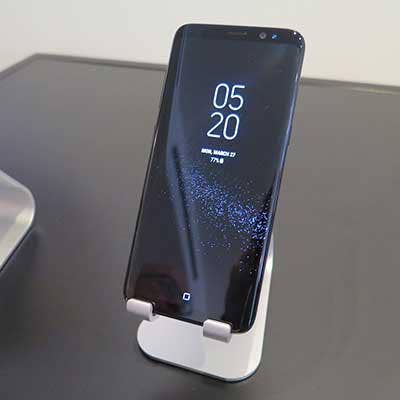
RAM & Storage
Google and Samsung have both been generous when it comes to RAM for their new phones, at least compared to Apple. The Pixel and Galaxy S8 each bolster the performance of their phones by including 4GB of RAM (which tops the iPhone 7's 2GB of RAM, and the 3GB of the iPhone 7 Plus).
The Pixel comes in two models in terms of storage, with 32GB or 128GB available. Samsung keeps things a bit simpler by offering only one version of the S8, with 64GB of storage, but then allowing for expandable storage with a slot for a microSD card of up to 256GB.
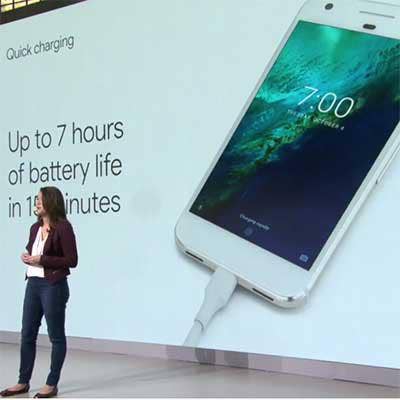
Battery Life
Samsung hasn't disclosed an estimate on battery life for the Galaxy S8, though there are a few reasons to expect the battery will be slower to drain than that of the Google Pixel.
Samsung has included a 3,000mAh battery in the Galaxy S8, which tops the Pixel's 2,770mAh battery. Also, there are the battery life advantages we already mentioned as a result of the S8's processor, the Snapdragon 835, which has four cores devoted to preserving battery life during less-intensive tasks.
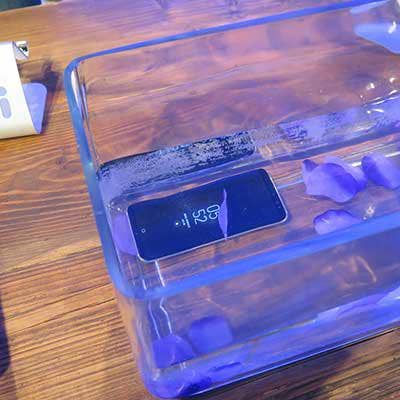
Durability
The Galaxy S8 has the advantage both when it comes to drops and exposure to water. Samsung has outfitted the S8 with Gorilla Glass 5, which promises to protect against screen shatters when dropped from 1.6 meters (about 5.2 feet). The Pixel features the older Gorilla Glass 4, which still promises drop protection, but only from 1 meter (about 3.3 feet).
Meanwhile, the Galaxy S8 comes with an IP68 rating, meaning the device can survive even after a half hour in five feet of water. By comparison, the Pixel has a lesser rating of IP53, which means it can withstand a bit of rain but may not recover from submersion.
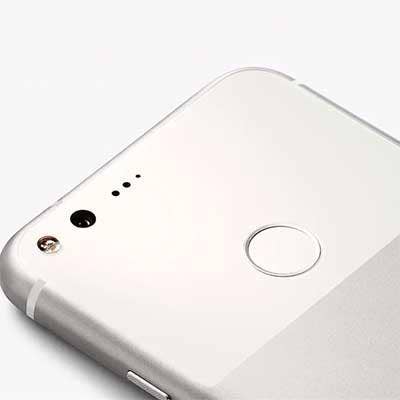
Camera
In terms of megapixels, the Google Pixel rear camera has just a slight edge over the Galaxy S8's, at 12.3 megapixels versus 12 megapixels. The S8 features dual-pixel camera technology, which has benefits including compensating for poorly lit situations, while Google said the Pixel features HDR+ (for improving image quality) and advanced stabilization (especially useful when shooting video).
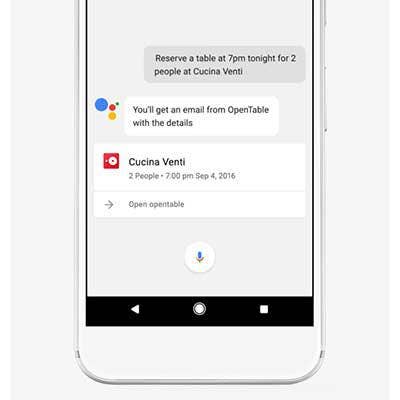
Special Features
One area where the Pixel stands out is for its integration of the Google Assistant, a virtual assistant that can handle a range of voice-controlled tasks and brings a lot of smarts when it comes to answering questions. Samsung is hoping the Galaxy S8 will also break ground with its virtual assistant, Bixby, which aims to let you do any task with your voice that you would normally need to accomplish with touch. We'll wait to try out Bixby before attempting a comparison with the Google Assistant.
Other features of the Galaxy S8 include iris scanning and facial recognition for biometric authentication, and the ability to connect over a special dock to an external display, keyboard, and mouse – using a feature called DeX. The feature provides users with a Windows-like Android desktop on which users can work both in Android apps and virtual desktops (powered by Citrix, VMware and Amazon Web Services).

Price & Availability
Samsung has said it's releasing the Galaxy S8 on April 21, and pre-orders are underway now. Google, meanwhile, has been having a good deal of trouble keeping the Pixel in stock since the phone's debut in the fall; an unlocked version from the Google store is currently out of stock in all three colors, though Best Buy and carriers such as Verizon have the phone available.
The Galaxy S8 is clearly the more expensive of the two phones. Samsung hasn't disclosed pricing for an unlocked version of the new Galaxy phones, instead leaving price decisions to carriers. But Verizon will be selling the Galaxy S8 for a retail price of $720, while AT&T and T-Mobile are pricing the S8 at $750.
The Pixel has a starting price of $649, for the model with 32GB of storage, while the 128GB version fetches a price of $749.